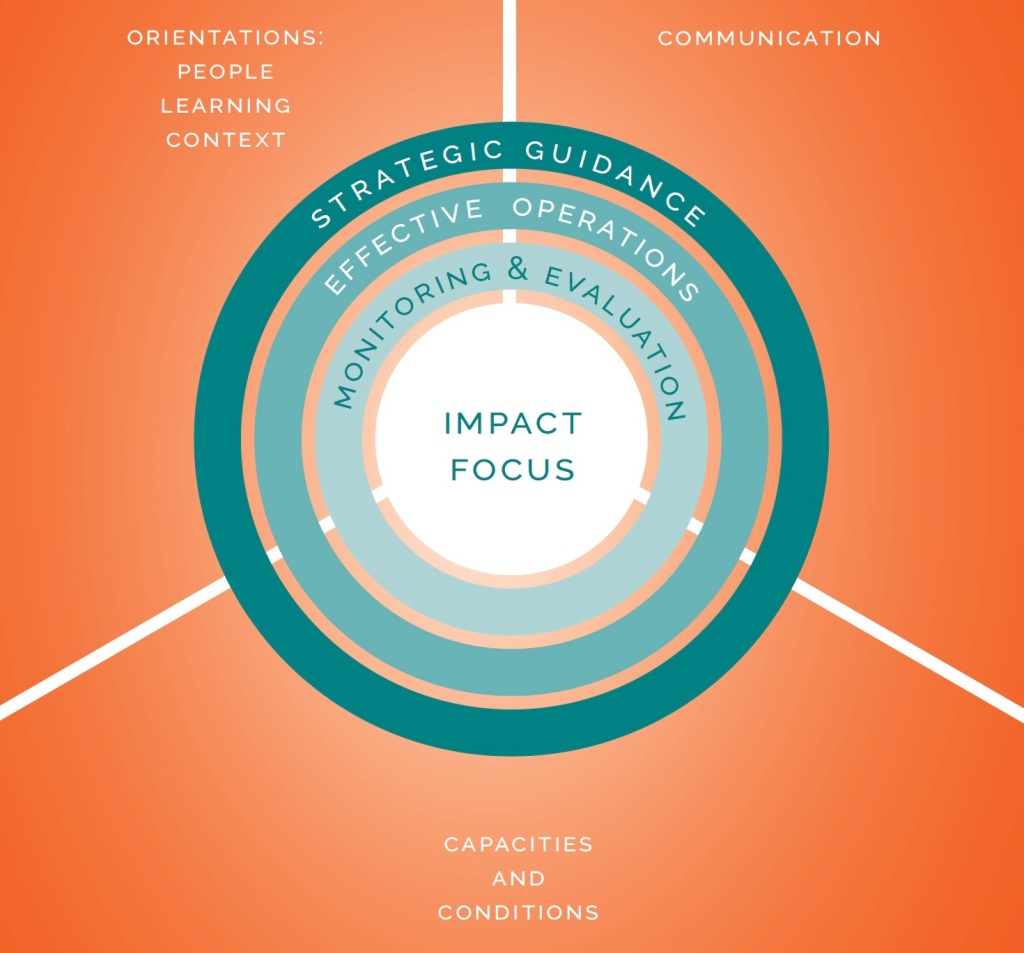Quick links:
The Managing for Sustainable Development Impact (M4SDI) approach is an integrated, results-oriented management approach, which can be used across a range of sectors and domains in a variety of contexts, and aims to contribute towards the Sustainable Development Goals.
It addresses some of the most pressing concerns, such as engaging primary stakeholders, designing effective strategies and related M&E, focusing on capacity development, and responding to change in a complex context.
Key features of M4SDI include its people-centered approach and how it seeks to integrate planning, monitoring and evaluation processes.

This guide builds on the earlier work of Irene Guijt and Jim Woodhill in the 2002 IFAD publication Managing for Impact in Rural Development: a Guide for Project M&E, and incorporates the insights and feedback of CDI colleagues, partners and over 800 practitioners who have been trained in English, French and Spanish in using the approach.
Testimonials from our peers:
Michael Quinn Patton, Author of Principles-Focused Evaluation: The GUIDE (2017)
Wisdom flows from principles. This book is wise. Effective practice flows from knowledge. This book is practical. Adaptability flows from understanding and engaging complexity. This book navigates complex dynamic systems. Integration flows from a comprehensive framework. This book provides that framework. From contextual sensitivity to strategic design, from collaborative and participatory engagement to useful evaluation, from theories of change to scaling for impact, from generating evidence to communicating results, this book brings the latest research and insights to bear in service of sustainable development. In doing so, it stays focused on benefits to real people in the real world in real time. In all these ways and more, the book delivers on the promise in its title, a comprehensive and integrated approach to Managing for Sustainable Development Impact.
Zenda Ofir, Independent International Evaluator; Honorary Professor, School of Public Leadership, Stellenbosch University, South Africa.
This highly topical, practical and easy-to-read book should inspire every person interested in how to manage – and use M&E effectively – in an era where development is framed by the SDGs. Important concepts are made simple, but never simplistic. It brings together 15 years of rich experience in how to think and work differently to get to real development impact. Written with keen insight and great clarity, it shows step by step how to move beyond RBM and logframes to where ‘systems thinking’, ‘learning’ and ‘adaptive management’ are not mere buzzwords, but concepts critical for good management. Zenda Ofir, Independent International Evaluator; Honorary Professor, School of Public Leadership, Stellenbosch University, South Africa.
Patricia Rogers, Professor of Public Sector Evaluation, ANZSOG (The Australia and New Zealand School of Government).
This book succeeds in bringing together clear, practical and useful advice on planning and managing for development, including using monitoring and evaluation to guide and improve practice and build learning for the future. It can be read in sequence or dipped into as needed, and given its range and scope, there will be something new to be learned from it by everyone. It deserves to become a key reference for managing for sustainable impact.
Oscar A. Garcia, Director, Independent Office of Evaluation at the International Fund for Agricultural Development -IFAD
An innovative and timely publication. A people-centred approach to reach impact in the sustainable development era. With a simple and practical style the book helps development practitioners to understand and address complexity while planning, monitoring and evaluating development initiatives. A gem of applied systems thinking to address the development challenges of our time with a renewed evaluative attitude. The authors draw on a solid academic foundation. They have enriched the managing for impact approach, based on a regional IFAD funded program in Eastern and Southern Africa (2006-2010), and also on many development projects and programs and with feedback from colleagues and course participants, in addition to literature review. The book is full of content with an updated compilation of methodological guidance, tools and schema on the dynamic process required for achieving sustainable development impact. Oscar A. Garcia, Director, Independent Office of Evaluation at the International Fund for Agricultural Development -IFAD
